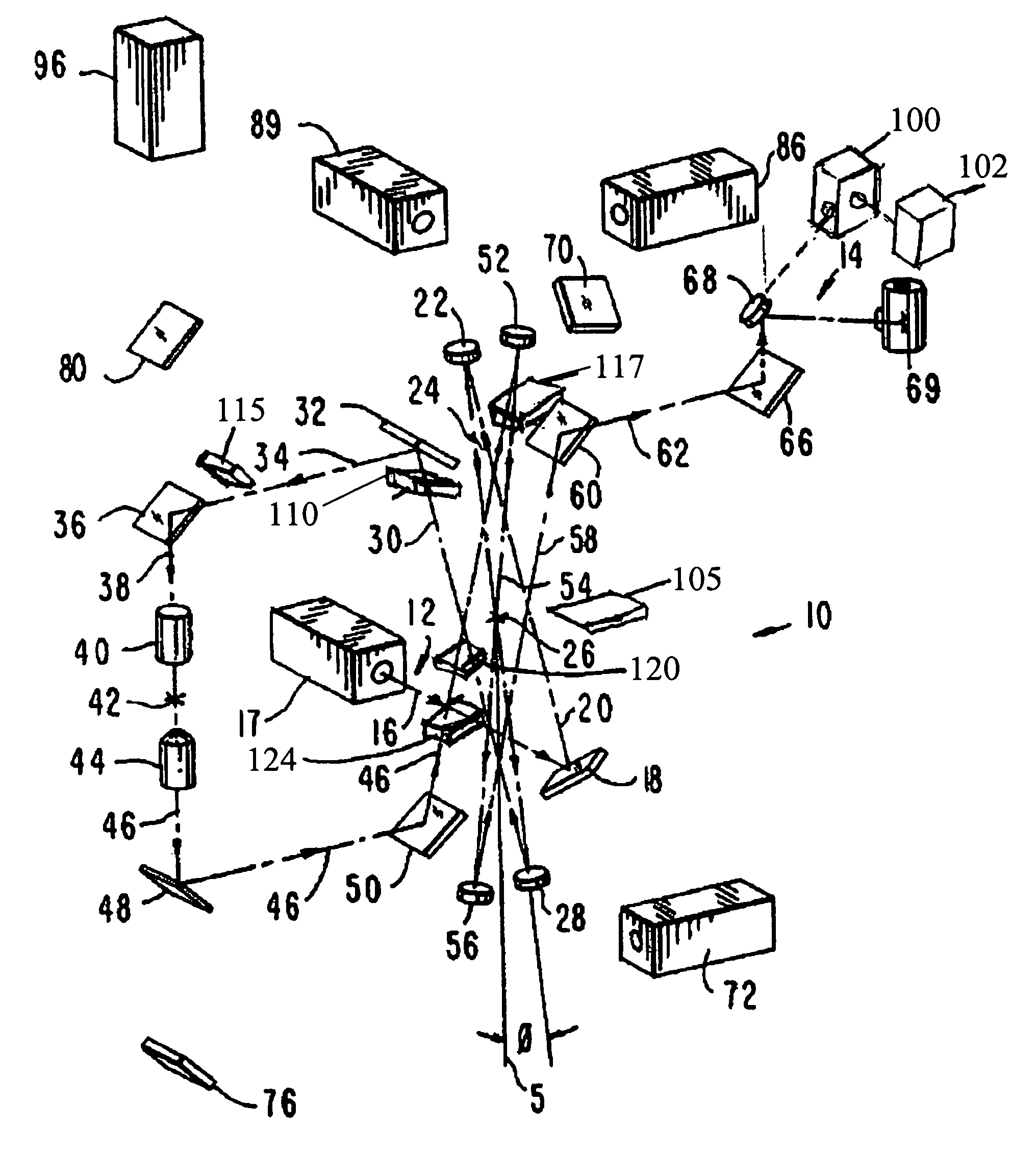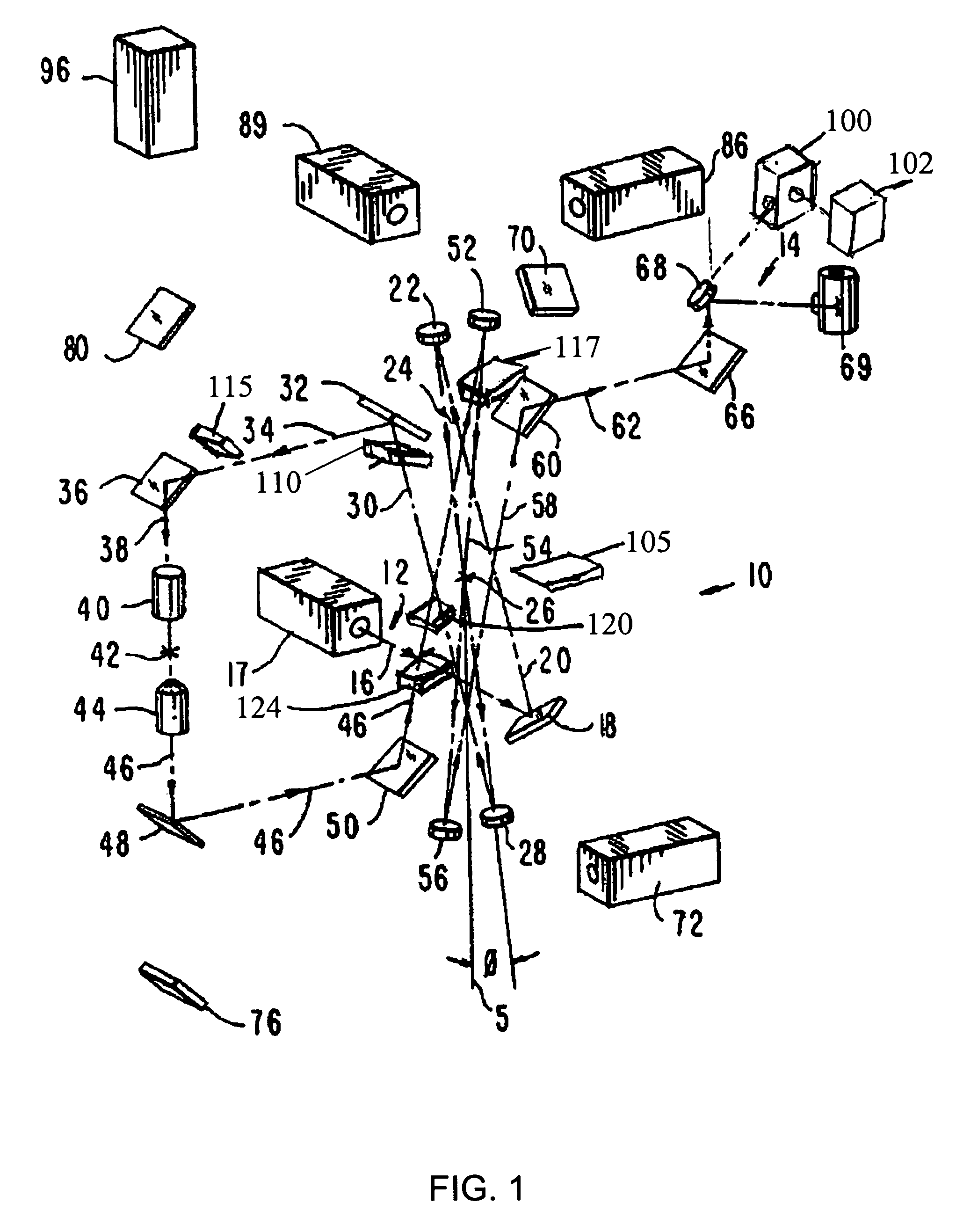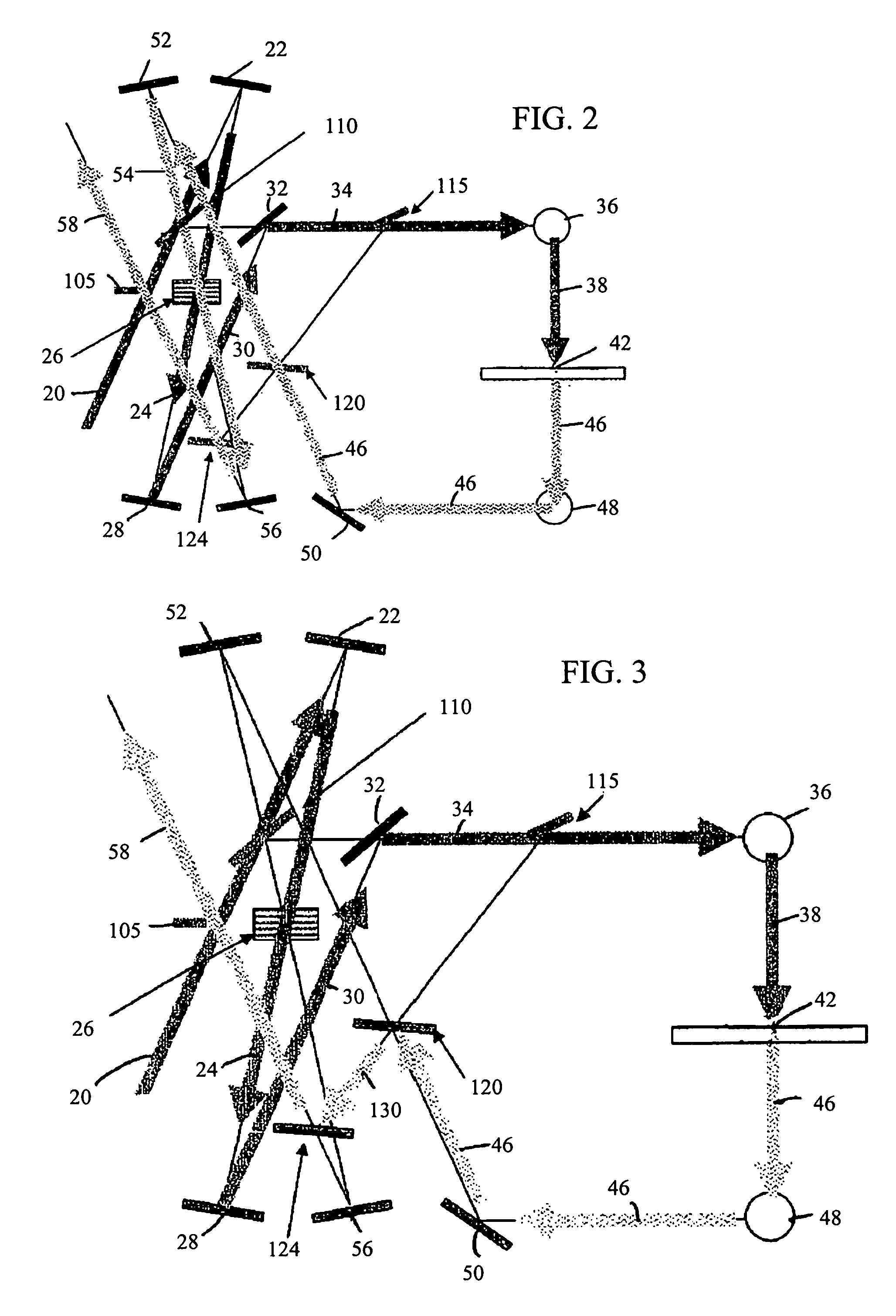Microspectrometer system with selectable aperturing
a microspectrometer and selectable technology, applied in the field of microscopy, can solve the problems of physical limitation of the field of view of the dual aperturing system, the relative large field of view required for the detector array, and the degradation of image quality, so as to maintain the overall image quality, minimize the angle of incidence, and increase the optical throughput and field of view
- Summary
- Abstract
- Description
- Claims
- Application Information
AI Technical Summary
Benefits of technology
Problems solved by technology
Method used
Image
Examples
Embodiment Construction
[0020]The microspectrometer system of the present invention is utilized to carry out Fourier transform infrared spectrometry of selected areas of a sample being examined. The microspectrometer system of the invention may carry out both reflection and transmission spectral analysis of a sample as well as allowing visual examination of the sample. For purposes of exemplifying the invention, a simplified perspective view of the optical elements of the microspectrometer system of the invention is shown generally at 10 in FIG. 1, having the basic optical structure as set forth in U.S. Pat. No. 5,864,139, entitled Confocal Microspectrometer System, which is incorporated herein by reference. Additional features of such systems are described in U.S. Pat. No. 5,581,085, which is also incorporated herein by reference. Conventional parts for the microspectrometer system, such as the housing, frame, mounts for the various optical components, and drive motors for operating the various movable op...
PUM
| Property | Measurement | Unit |
|---|---|---|
| infrared microscope | aaaaa | aaaaa |
| infrared microscopy | aaaaa | aaaaa |
| microscopy | aaaaa | aaaaa |
Abstract
Description
Claims
Application Information
 Login to View More
Login to View More - R&D
- Intellectual Property
- Life Sciences
- Materials
- Tech Scout
- Unparalleled Data Quality
- Higher Quality Content
- 60% Fewer Hallucinations
Browse by: Latest US Patents, China's latest patents, Technical Efficacy Thesaurus, Application Domain, Technology Topic, Popular Technical Reports.
© 2025 PatSnap. All rights reserved.Legal|Privacy policy|Modern Slavery Act Transparency Statement|Sitemap|About US| Contact US: help@patsnap.com



